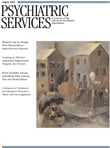Meaning in Suffering: Caring Practices in the Health Professions
Suffering is a universal and unavoidable part of human existence. In the course of caring for the sick, health care providers are uniquely positioned to play a role—positive or negative—in the lives of persons suffering. In Meaning in Suffering, which is the sixth volume of the series "Interpretive Studies in Healthcare and the Human Sciences," the editors draw together works from various authors to explore the meaning of suffering and how health care professionals can have an impact on this meaning.
Suffering is evil, as one author argues, or humans would not strive to avoid it. When we suffer, especially with the loss of health, we lose control of how our world works on a fundamental level. Besides our own dismay at this changing reality, we must also cope with the fears and prejudice of others. We live in a culture where health and control are prized, whereas the vulnerability of suffering is shameful.
Although the authors in this volume acknowledge this perspective, they argue that the outcome of suffering is not always negative. Positive responses such as compassion and forgiveness affect how the sufferer imagines and experiences suffering.
Although health care providers have frequent opportunities to interact with persons who are suffering, most providers keep a professional distance. As a result, provider-patient interactions are often negative. This is illustrated in the book's opening paragraph. A young physician is unable, or unwilling, to move beyond her professional props of paperwork and jargon to interact in a meaningful way with a dying patient.
After setting the stage, the authors challenge health care providers to remove their professional distance and find a "fitting response" to the suffering of others. Author and editor Nancy Johnston notes that the "helpfulness of health professionals resides in their capacity to call forth the conditions in which meaning can be restored." Subsequent authors explore the conditions of storytelling and artwork as ways suffering patients find meaning in their suffering. Ultimately, then, suffering gains meaning through the imagination and subjective interpersonal interactions of the person suffering.
Although the editors should be applauded for their efforts to remind health care providers of the importance of helping patients with their experiences of suffering, it is unfortunate that the "methodologically rigorous" language of the book serves as a barrier to the non-research-oriented reader. The theoretical orientation of the authors results in a dense writing style and in an unnecessary overstatement of some points, such as making a case to health care providers for compassion in the face of suffering. The book is most effective in its later chapters, when it speaks to practical ways providers can overcome professional distance and have an impact on the suffering of others in a positive manner.



